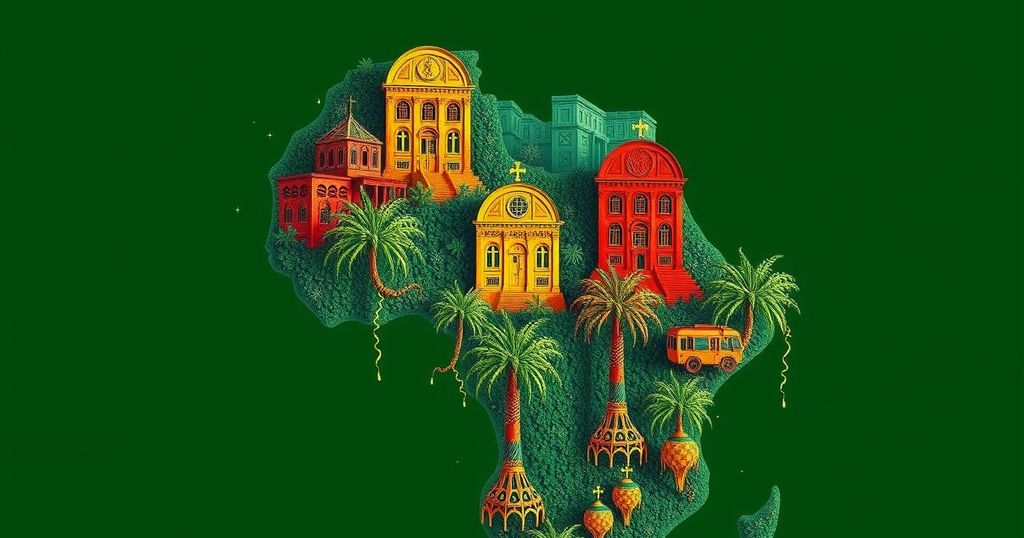Alan Kyerematen Advocates Transformative Leadership to Overcome Ghana’s Partisanship
Alan Kyerematen, at the Afrafranto Mega Victory Walk on November 2, 2024, proposed a vision for Ghana focused on transformative leadership to overcome excessive partisanship. He emphasized economic stabilization and youth empowerment while urging Ghanaians to look beyond party allegiance towards leaders dedicated to the common good. His message resonated as he called for national unity and practical policies, aiming to forge a prosperous future for the country.
In a compelling address delivered during the Afrafranto Mega Victory Walk in Greater Accra on November 2, 2024, presidential candidate Alan Kyerematen articulated his vision for a Ghana free from debilitating partisanship and propelled by transformative leadership. He criticized the entrenched political divide as a significant barrier to national progress, asserting that it has stymied Ghana’s potential. Kyerematen emphasized the need for a shift from party loyalty towards leadership that prioritizes the collective good, stating, “Great nations of this world were not built on the backs of political parties; they were built on the backs of strong, visionary leaders.” He cited global examples, such as China and Singapore, which advanced under strong leaders rather than party ideology. He underscored the importance of viewing the upcoming election as a pivotal moment for the country’s future rather than for political parties. He urged Ghanaians, “This election is not about the future of political parties; it’s about the future of Ghana. We cannot afford to let excessive partisanship stand in the way of real progress.” Kyerematen pledged to prioritize economic stabilization, targeting a reduction in the exchange rate of the cedi, and expressed his commitment to prudent economic management as essential components of his Great Transformational Plan (GTP). Furthermore, he extended hope to the youth of Ghana by promising opportunities that would prevent them from facing joblessness upon graduation, declaring, “Under my administration, it will be difficult for a young person to complete school and have nothing to do for a livelihood.” Kyerematen outlined youth empowerment initiatives that aim to create sustainable job opportunities, enabling young Ghanaians to engage meaningfully in the economy. In his vision for governance, he highlighted the necessity for a national unity government that transcends party allegiances and implements effective, practical policies. Kyerematen reiterated, “The youth of Ghana deserve leaders who are willing to rise above partisanship to deliver real change.” He positioned himself as a candidate willing to prioritize integrity and transparency over party loyalty. Concluding his address, Kyerematen called for national solidarity in building a resilient Ghana, stating, “Together, we can build a nation that is strong, resilient, and truly free from the chains of partisanship. This is our time, and this is our chance.” His appeal resonated with the crowd, underscoring his commitment to usher in a new era of governance focused on the nation’s collective success.
The political landscape in Ghana has long been characterized by intense partisanship, with the leading political parties, the New Patriotic Party (NPP) and the National Democratic Congress (NDC), often prioritizing their affiliation over national interests. This divide has contributed to a stagnation within the nation, hindering effective governance and economic progress. As Ghana prepares for the December 2024 presidential elections, candidates like Alan Kyerematen advocate for a transformative leadership model, which seeks to dismantle the prevailing political barriers in favor of uniting the country under a common vision for progress. Kyerematen’s messaging reflects a growing desire among the electorate for leaders who prioritize national unity and development over party-based politics.
In conclusion, Alan Kyerematen’s recent address highlights a pressing call for Ghana to transcend its excessive partisanship through transformative leadership. By prioritizing national unity and effective governance, he aims to restore faith in leadership and create opportunities for the youth, ultimately fostering economic stability. His vision represents a significant departure from traditional party politics, advocating for a collective approach to resolve the nation’s challenges. If realized, this approach could lead Ghana towards a more prosperous future free from the binds of political division.
Original Source: www.ghanaweb.com




Post Comment